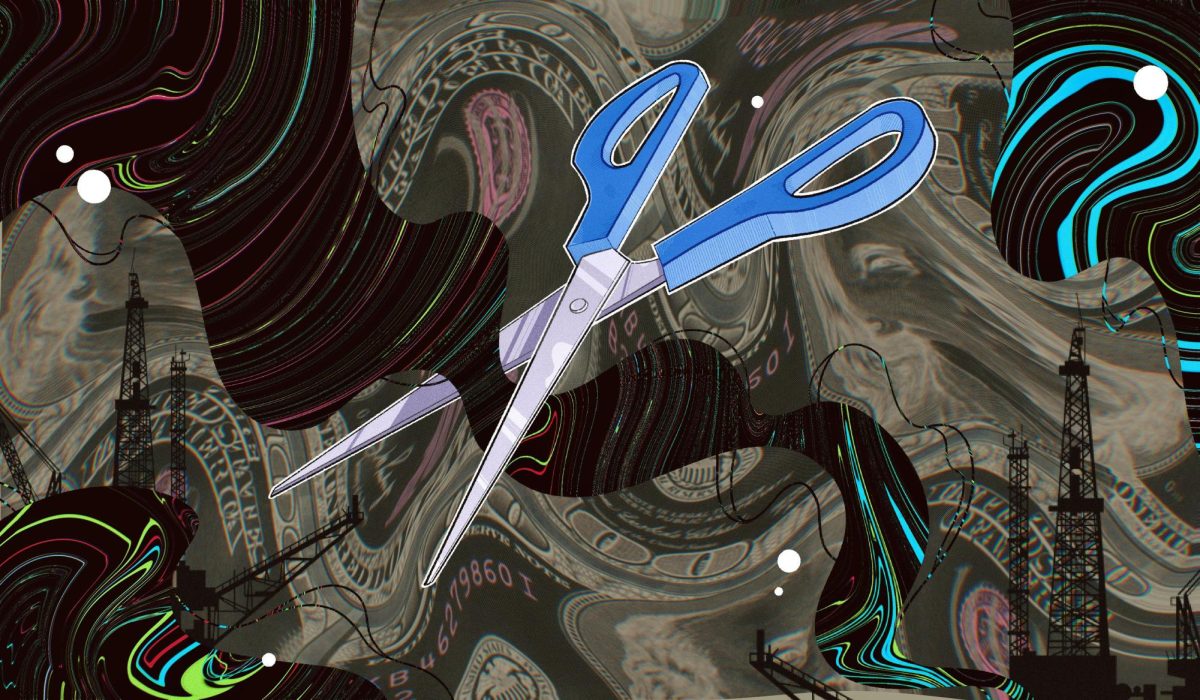In order to cure a disease, one should strive to find the cause rather than solely treat the symptoms. The structure of this university is full of symptoms of a larger disease that the administration refuses to acknowledge; instead of coming to better terms with the cure, it is throwing Band-Aids and hoping they stick. The road to hell is paved with good intentions, and its latest plans to bring the retailer Target onto campus is sure to give us miles worth of asphalt. This time the Band-Aid is supposed to cover the problems that students have with the UC San Diego Bookstore’s stock and prices of common use items, along with providing a cheaper alternative to the campus markets when shopping for produce and basic groceries.
Convenience is the biggest argument that the administration provides for this proposal, citing the ease of having a company with a vast range of products and services at low price points right on campus. One of the many reasons stems from the isolation of UCSD from the rest of La Jolla and the larger San Diego area, which makes shopping off campus a hassle, if not altogether unrealistic, for some students. The proposed Target will do little to address this, however; it will not open until 2020 at the earliest. The Mid-Coast Trolley that will connect campus directly with the rest of the neighborhood and extend into downtown is projected to be completed by 2021. The addition of these trolley lines will solve a lot of the current problems with the lack of retail options on this campus by allowing students to incorporate themselves into the already-thriving commercial centers of the La Jolla and Clairemont Mesa area. Another effective solution to this lack of retail is already on campus in the form of the Amazon Lockers and the Amazon Pickup center in Price Center. This allows students to purchase just about anything they could from a Target and have it delivered to campus at price points that are usually lower than those found in big-box stores like Target.
Despite Amazon’s presence, one can almost guarantee there will be a big profit with the campus population due to the low prices and the large array of products being available on the spot, not to mention the contrast to the markets and the UCSD Bookstore which have limited stock and exorbitant prices. Target is being touted as a solution, which indicates that the administration is aware that there is something flawed with the current situation. Attempting to fix the broken system would be asking too much of them, so instead it is privatizing. This demonstrates a different angle to the convenience of this Target because it will address the complaints regarding the food problems that this campus faces without actually requiring heavy lifting from the university. Far from the miraculous fix the administration wants it to be, it is simply its latest surface-level action to appease us. In-house options, Housing Dining Hospitality in particular, present many problems and inefficiencies to the student body, and until the university chooses to address the issues with the organization that dominates student life, it’ll continue to privatize and under-serve this campus.
Using private businesses to remedy the problems of this public institution is, in and of itself, a problem. Even without the Target and Amazon, there is an ever-expanding presence of corporate businesses, with almost all of PC’s dining facilities being corporate eateries. Not only that, but the campus hosts innumerable coffee carts, restaurants, and take-out locations; UCSD is a commercial paradise. One retailer soon turns into two and so on until there is a mall on campus in the interest of diversifying the shopping experience. Due to the transportation changes occurring on or around campus, this seems significantly less likely to be beneficial to the students directly, but rather to serve the interest of creating a consumer experience for the community of this institution.
This can only be mitigated by popular consensus on how we as a student body want the culture on this campus to present itself. The decision then is whether or not we would like it to be rife with private enterprise that leads to sending student and public money to the Fortune 500. College students are some of the most vulnerable to corporate interests; they are in debt and are often part-time workers. By allowing Target or any other major retailer on this campus, UCSD is giving them a loyal clientele that will visit them at least once a week for four years, maximizing their profit as they prey on an institutionally disadvantaged group of people.
Fundamentally, this issue goes beyond the bureaucratic hypocrisy and minimal, low-effort attempts at solving real afflictions, to the fact that this is first and foremost a public university. Inserting a corporation, a group that is operating for its own profit, into the very heart of campus defies the very spirit of public education at a time when the concept itself is already being crushed by ever-rising tuition costs and privatization of other realms of student life. Every concession to big business is a step against the tenets of a public enterprise. As the campus grows, big business grows too, and it is up to the communities of these schools to determine how much they wish to sell out their college experience.








